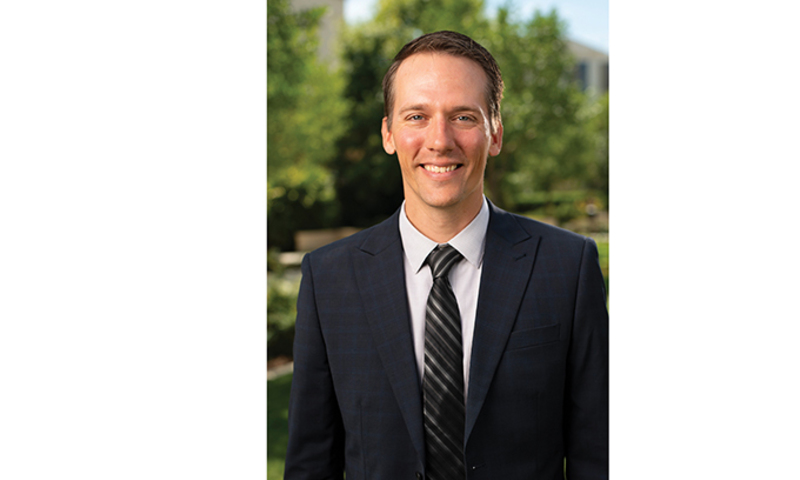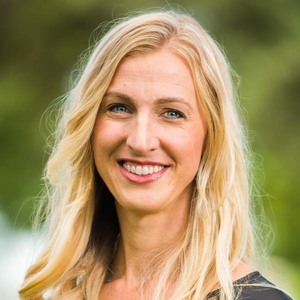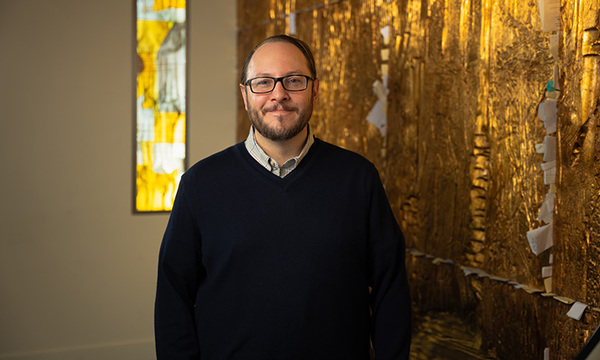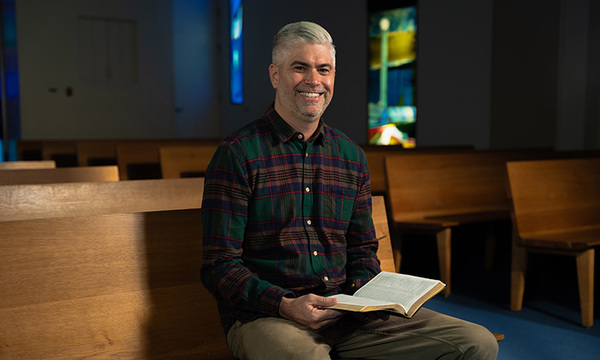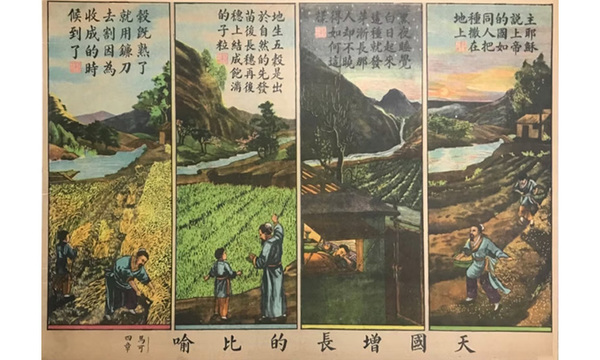David Merrill (M.Div. ’10, Th.M. ’12) has been teaching spiritual formation for Talbot’s Spiritual Formation Core (SFC) for the past two years and was hired as a full-time faculty member in 2019. Prior to returning to Talbot, Merrill helped pastor Paradise Evangelical Free Church in Northern California as it navigated the aftermath of the devastating fires in the city of Paradise. Merrill completed his doctorate at Durham University, where he studied the spiritual theology of 17th century Anglican Thomas Traherne.
Q: You began teaching here full time in fall 2019 but Biola is not a new environment for you. Tell us why you are excited to be back.
I completed an M.Div. in spiritual formation and a Th.M. in historical theology here at Talbot. It has become clear over the years that one of my central callings is to be an equipper of the saints, and I feel extremely privileged to be a part of Talbot, which is overtly and strategically involved in the equipping of the saints.
Q: What classes do you currently teach?
I teach Introduction to Spiritual Theology (part of Talbot’s SFC), Foundations of Spiritual Formation and a class on vocation and the spiritual disciplines. The way I think of the classes relates to the great commandment. The first class is loving God and sitting in the vertical relationality of me and God, forming a biblical theology of what it is to grow in our love for God and learn to be loved by him. The second is a move to the horizontal — how we have been impacted by our human relationships. The third class is a little bit of the “so what?” What has God actually called us to do?
Another aspect of my role is to give release time to some of our professors as they create a spiritual formation program for the church. They are distilling some of the best things we have at Talbot. We’re creating video content of our faculty (e.g. John Coe, Judy TenElshof, Betsy Barber, Steve Porter, Kyle Strobel). But we also plan to facilitate small groups where one highly trained person will guide them through this content
Q: Can you give your elevator pitch for your doctoral research?
My work in Thomas Traherne primarily looked at the interplay of our human capacity for desire and looking at what captures our desire. Ultimately, divine beauty is that thing which is most attractive to our desire. The purpose of capturing our desire is to draw humans back into relationship with God. In short, the question is: How do beauty and desire function for us as human persons in our life and growth in sanctification?
Q: Prior to moving back to La Mirada, you pastored for a short time in Paradise, California. What can you tell us about that experience?
The two years prior to joining the Talbot faculty full time, I taught online courses for Talbot while living in Northern California, just miles from Paradise, California, which endured the most devastating wildfire in California history. The part-time nature of my teaching enabled me to be closely involved in the church’s response to this tragedy. It was a great gift to be able to offer some of my ISF training to this community: retreats, pastoral care, preaching, teaching, clergy care and spiritual direction.
Q: Tell us a little bit about your family life and how you enjoy spending your free time.
We have four kids (ages 1–10), which means a lot of our free time is wrapped up in engaging, playing with and loving the four of them (e.g. going to the beach, playing soccer). It has been fun through the Lent season as we have been doing a daily examen with the three older ones. We’re trying to train them to reflect on their day, think about how God has been present with them on the playground, in the classroom, in times that have been hard or frustrating. As far as my own hobbies, I love to methodically and carefully read a book with a cup of coffee.
 Biola University
Biola University